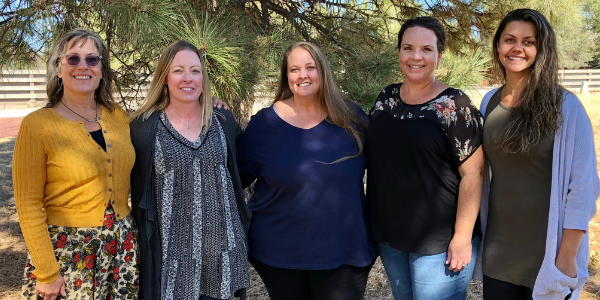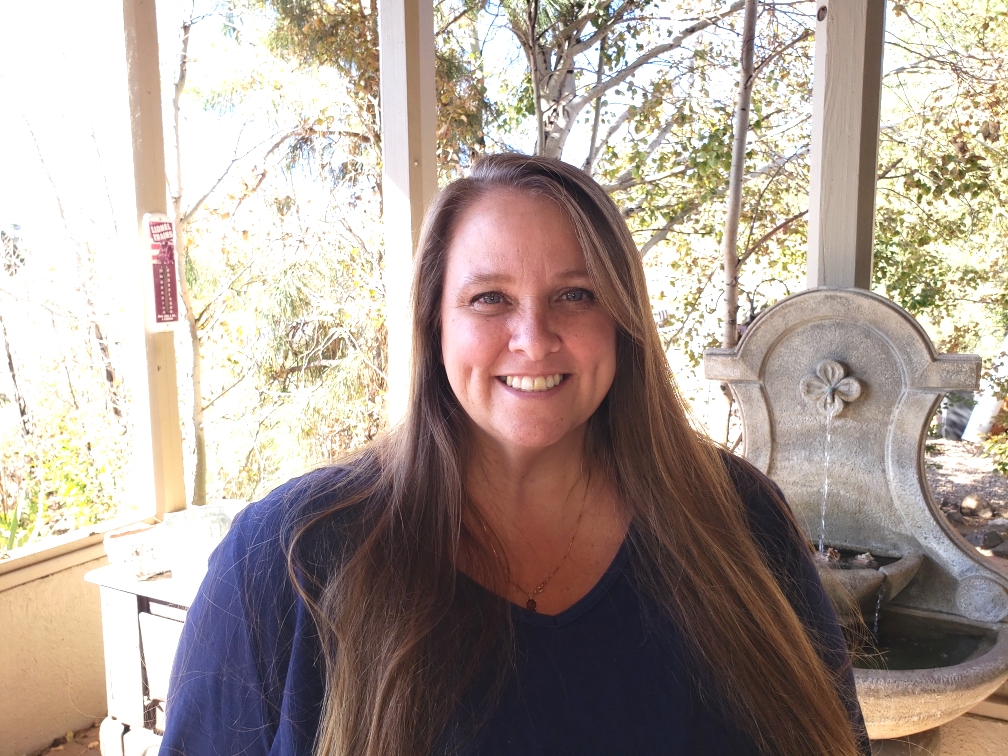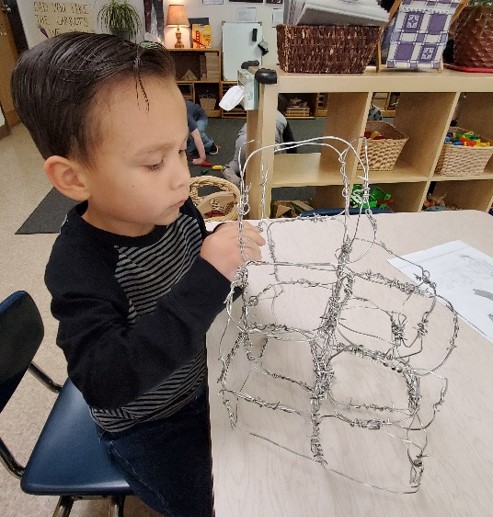October 23, 2020
AzAEYC 2020 Scholarship Awardee Jennifer Sullivan reflects on changes in the early education field, the value and the challenges of pursuing higher education while teaching full time, and why advocating for equity in compensation for ECE teachers is at top of her list of plans for the future.
Jennifer expects to graduate with a Bachelor of Applied Science in Early Childhood Education from Northern Arizona University in December, 2020.
What inspired you to go into the field?
I’ve always loved children. I’ve been in the field for a really long time, and I’ve seen it change. One of the reasons I went back to school was because of those changes.
Contrast your experiences from the past to current practice.
We have tools and forms that enable us to do our jobs a lot better. I think there are centers out there that are still in the mindset of babysitting. Obviously, the compensation does represent that. At a quality or early care center, we talk about what is best for the children, what is developmentally appropriate for the children. It is based on brain science.
Talk about your own education pathway.
I am student teaching currently in second grade. My placement actually ends in a week and a half and I’m already really sad because I do grow attached to the children very quickly, even though we’re on Zoom.

I’ll be moving on to another classroom (NAEYC Accredited Foresight Learning Center in Flagstaff) where I’ll spend the next eight weeks getting to know those children, and then I’ll be done. I’m happy and sad at the same time!
How will the scholarship funds be useful to you?
I’ve been with my company for 22 years and I have always worked full time. With this semester of student teaching, I can’t work full time during my student teaching placement. It will help me make it through to the end of the semester, for sure. I’ll be getting my bachelor’s degree in early childhood.
How will completion of your degree change your position in the field?
It adds credibility to all the years that I’ve put into working with children, to have the education to go with the experience. It validates everything that I’ve worked for my whole life. It’s knowing the science behind it.
Talk about some of the challenges you’ve faced along the way.
It’s hard to go back to school. It’s taken me a really long time. I wish I could say it was easier — to work full time and go to school full time and to be a single parent, but it’s not. I hope to inspire other teachers to want to do that. I’ve always worked full time and gone to school full time. So, I’ve inspired a few other teachers to enroll in college.
What would you like the public to know about early childhood education — especially considering the challenges of the past several months?
We are considered essential workers now, but I know over my entire career, I’ve always been essential. I’ve been essential to every single child that walked into that center. I was essential to every parent that walked into the center. I’m essential to that two-year old that runs in every single morning and needs to see me. I’m central to their routine. These last nine months have been difficult.
Example?
One thing is wearing the mask around the children, you know, sometimes I’ll have to walk in the classroom and pull my mask down very briefly and say, “It’s me — I’m here for you!” It’s been important for us to be there for those families so that they could get back to work and our community could start opening up again.
In your student teaching with second graders right now, contrast the virtual, online experience with that of the early ed teachers who are teaching birth to five in the classroom.
The teachers that are doing the practicum or student teaching in the younger classroom are still able to be with the students, experience the one on one with the students or in small groups. Teaching on Zoom is, of course, not the same. I’ve spent my entire life being surrounded by children, sitting on my lap — it’s been hard for me to step away from that and not be with the students. I am looking forward to when I switch and I can be in the actual physical classroom with the students.
Future plans after you receive your degree?
I do plan on applying for graduate school when I’m finished with this degree. Because, why not? To use this knowledge in my community, to do more advocating — for the field, specifically, for teachers to gain more access to education — and then for better compensation for this profession.
Through AzAEYC, the Rhian Evans Allvin and Joshua J. Allen Scholarship was created to acknowledge the outstanding service of early childhood professionals by recognizing leadership qualities and commitment to early childhood education and public policies that support the well being of young children. This year’s scholarship was graciously funded by the members of North Central Women’s League in Phoenix.


